Extra support required for circular economy development in Vietnam
What are the bright spots in terms of applying the circular economy in Vietnam?
The circular economy, green economy, and low carbon economy have been stipulated in the Law on Environmental Protection in 2020, which is also the model that the country will pursue to fulfil its commitment to achieve net-zero carbon emissions by 2050.
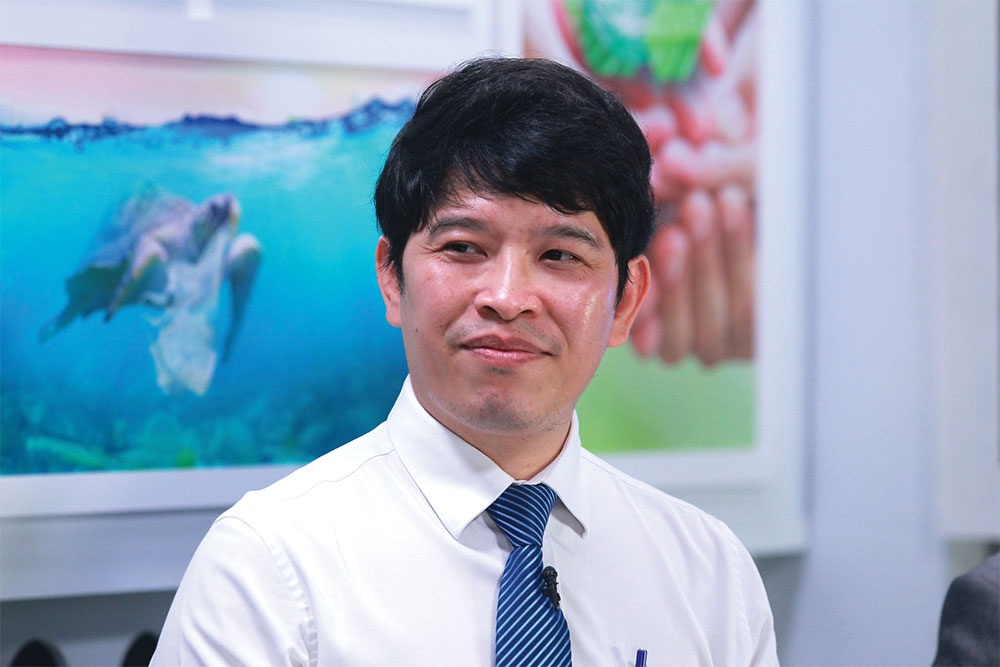 |
| Assoc. Prof. Nguyen Dinh Tho, general director of the Institute of Strategy and Policy on Natural Resources and Environment |
Vietnam is one step ahead compared to countries with massive net emissions, such as Brazil, India, China, and Russia. However, it is increasingly difficult to realise its commitments. The 2020 Law on Environmental Protection has very progressive requirements, larger than other countries in the region, such as Singapore or Malaysia, which leaves many manufacturers apprehensive. Therefore, they have proposed that the extended producer responsibility regulations must have a roadmap for implementation and be behind the progress we want under the Law on Environmental Protection.
How are the current roadmaps towards a circular economy being implemented?
Vietnam has targets to reduce greenhouse gas emissions by 9 per cent with domestic resources and 27 per cent with international support by 2030, focusing on areas such as transport, industry, agriculture, mining, waste treatment, and land use conversion.
As a result of consultation with experts, the Ministry of Natural Resources and Environment has proposed a roadmap to implement the circular economy through a systematic approach. By 2025, Vietnam must complete a full legal framework for implementing the circular economy. It is required to develop a national action plan to implement the circular economy for 2020-2030, and integrate circular economy objectives in formulating annual socioeconomic development plans, strategies, policies and development planning of ministries, sectors, localities, and agencies.
By 2030, we need to promote sustainable exploitation and use of resources and develop renewable fuels and materials to meet production requirements. At the same time, eco-design, sustainable design, and design for recycling, reusing and prolonging product life should be enhanced. And by 2033, the country will increase the application of production processes using recycled materials, promote the development of symbiotic industrial parks (IPs), and strengthen sustainable supply chains.
What issues should Vietnam pay attention to regarding the circular economy?
Circular is not just waste management, but should be fully considered in all five phases of design, production, consumption, waste management, and turning waste back into a resource. Design in the circular economy includes not only product design, but also waste design. Therefore, the set goals include creating green products and increasing the ability to recycle. The production stage needs to focus on reducing emissions and the circulation of materials in the production stage. Meanwhile, consumption will include providing better services, and increasing the responsibility of consumers towards the ecological environment. The final stage of waste management will include sorting, collection at the end of the life cycle, and recycling waste.
The United Nations Industrial Development Organization has outlined the aforementioned five stages along with the four main goals of reducing the environmental footprint, increasing incomes, reducing dependence on resources, and minimising waste.
What criteria do you suggest the country should introduce to encourage businesses to apply the circular economy and develop it?
Evaluation of the circular economy in Vietnam should include three criteria. The first is to evaluate the implementation of the circular economy at the national and provincial levels. Second is evaluating the implementation of the circular economy for concentrated production, business, and service zones, industrial clusters, urban areas, and concentrated residential areas. Third is evaluating the circular economy model for investment projects, production, business, services, and production facilities.
The government also needs to offer supportive solutions and incentives in administrative procedures to offset some of the costs incurred to encourage businesses to apply good circular models and promote business connections.
Vietnam should also offer incentives for businesses to participate in circular economy development cooperation in IPs; encourage and support enterprises to apply technologies, equipment and products that are beneficial to environmental protection and energy saving; and simplify lending procedures for investment incentive projects.
In addition, facilitating the formation of a market for developing a knowledge-based economy also includes promoting market demand for recycled products and products containing recycled ingredients.
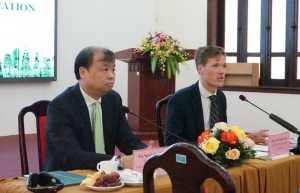 | Solutions for developing circular businesses On August 19, the Ministry of Planning and Investment's Central Institute of Economic Management (CIEM) in collaboration with the Embassy of Denmark held the launching workshop report on The Circular Business Model: International experience and application in Vietnam. |
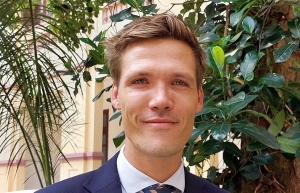 | Developing a robust circular economy through the best practices of Denmark A circular economy can help achieve sustainable development goals, effectively tackling climate change and mitigating the negative impacts on the environment. Carsten Baltzer Rode, deputy head of Mission at the Embassy of Denmark in Vietnam, talked to VIR’s Huong Thuy about the practical experiences from Denmark in regards to circular business development. |
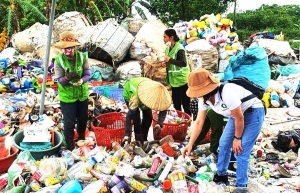 | Unilever Vietnam to collect 12,000 tonnes of plastic waste Plastic waste segregation at source is critical in bringing plastic back to serve business activities while promoting the Circular Economy model in Vietnam. Collecting and processing more plastic waste than packaging sold in the market is also a commitment that Unilever needs to achieve by 2025. |
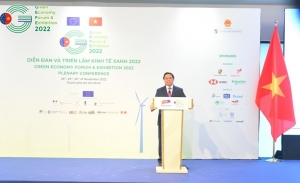 | Green Economy Forum & Exhibition 2022 enhances cooperation in circular economy The circular economy, green tourism, renewable energy, smart cities, sustainable agriculture, water treatment, and more green economy-related topics are being discussed at the Green Economy Forum & Exhibition (GEFE) 2022 organised by Eurocham Vietnam from November 28 to 30 in Ho Chi Minh City. |
What the stars mean:
★ Poor ★ ★ Promising ★★★ Good ★★★★ Very good ★★★★★ Exceptional
 Tag:
Tag:
Related Contents
Latest News
More News
- PM outlines new tasks for healthcare sector (February 25, 2026 | 16:00)
- Ho Chi Minh City launches plan for innovation and digital transformation (February 25, 2026 | 09:00)
- Vietnam sets ambitious dairy growth targets (February 24, 2026 | 18:00)
- Masan Consumer names new deputy CEO to drive foods and beverages growth (February 23, 2026 | 20:52)
- Myriad risks ahead, but ones Vietnam can confront (February 20, 2026 | 15:02)
- Vietnam making the leap into AI and semiconductors (February 20, 2026 | 09:37)
- Funding must be activated for semiconductor success (February 20, 2026 | 09:20)
- Resilience as new benchmark for smarter infrastructure (February 19, 2026 | 20:35)
- A golden time to shine within ASEAN (February 19, 2026 | 20:22)
- Vietnam’s pivotal year for advancing sustainability (February 19, 2026 | 08:44)






















 Mobile Version
Mobile Version